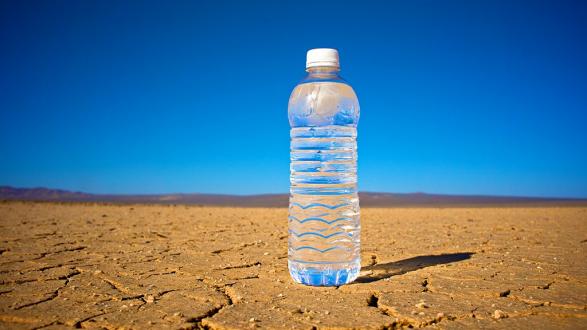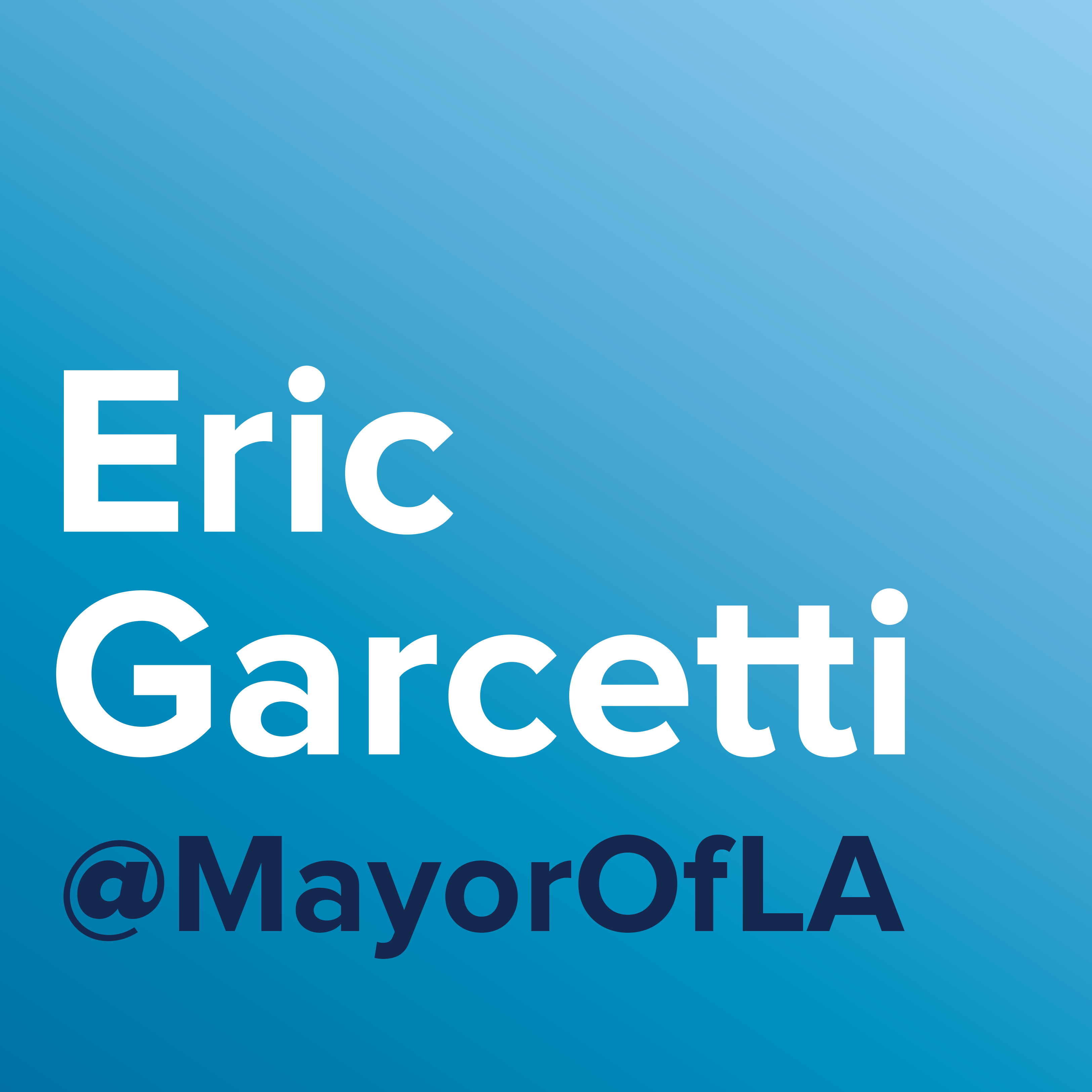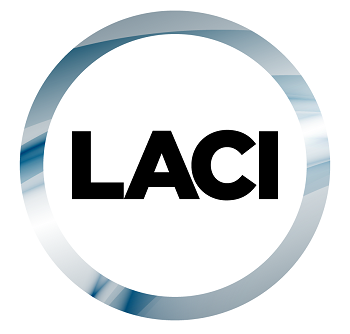Read a summary of the keynote interview and insights from the conference panels, and watch videos of the TED-style talks and interviews with experts. Check out photos from this conference on our Flickr page.
A special program exploring global water scarcity challenges and solutions, presented in partnership with O’Melveny & Myers LLP as part of the Pacific Council's Global Water Scarcity Project.
Contact the Events team at events@pacificcouncil.org or (213) 221-2020 for more information.
The Global Water Scarcity Project connects the dots between California's water scarcity challenges and international issues of trade, energy, politics, and security. This project was made possible with support from the Conrad N. Hilton Foundation, a leader in helping the world’s vulnerable and disadvantaged communities gain access to safe water.
Here and abroad, the effects of water scarcity extend beyond the possibility of drought, spilling into cross-border conflict, global trade issues, and human (in)security. What can we do to address these issues now and create a water abundant future?
Read expert analysis on water issues ahead of the conference:
- Dr. Marcus DuBois King on water stress, instability, and violent extremism
- Dr. Todd Diamond and Dr. Basil Mahayni on water solutions to the displacement crisis in the Middle East
- Mr. Sam Casella on the Mekong River as strategic terrain
____________________
Agenda:
9:30am-10:30am
TED-Style Talks
Explore how water scarcity connects with Global Trade, Energy, Politics, National Security, and Human Security.
Featuring:
Ms. Kirsten James, Director, California Policy and Partnerships, Ceres
Ms. Rachel Cardone, Global Water Scarcity Project Fellow, Pacific Council
Mr. Barton H. "Buzz" Thompson, Jr., Robert E. Paradise Professor of Natural Resources Law, Stanford Law School; and Of Counsel, O'Melveny & Myers LLC
10:45am-11:45am
Session 1: Global Water Hotspots & U.S. Military Priorities
The failure to sufficiently invest in water security now could mean that the United States and other international actors will incur great costs in the future to respond to potential humanitarian crises, public health emergencies, and conflicts between or within states. Water scarcity also has the potential to inflame regional conflict; particularly during the last two decades, water has incited instability in the Middle East through adverse climate conditions, water mismanagement, and the use of water supply as a weapon itself. How are water problems (shortages, poor water quality) already impacting U.S. national security interests overseas?
Featuring:
Dr. Marcus DuBois King, Associate Professor and Director, Elliott School of International Affairs, George Washington University. Read Dr. King's advance analysis on water stress, instability, and violent extremism here.
Ms. Betsy Otto, Director, Global Water Program, World Resources Institute
Mr. Todd Diamond, Director of Middle East Region, Chemonics International. Read Mr. Diamond's advance analysis on water solutions to the displacement crisis in the Middle East here.
Moderator:
Ms. Heather Welles, Associate, O'Melveny & Myers LLP
Session 2: Urban Water Resilience Across the Globe
It is anticipated that in the next 30 years, urban water demand will increase by 50 percent. Challenges such as population growth, economic expansion, and climate change further threaten water supplies in cities around the world. In the United States, nearly one in 10 watersheds is "stressed" with demand for water exceeding its natural supply—a trend that appears likely to become the new normal. Cities that are exposed to drought, such as Los Angeles, face the challenge of resiliency—most cities are dependent on large, centralized water supplies. As surface water becomes less available, there will be growing challenges for agriculture, electrical suppliers, and municipalities. Cities across the globe are re-thinking investments in infrastructure and water management practices. Are there lessons learned for other governments, businesses, and civic leaders who live in cities affected by water shortages?
Featuring:
Ms. Liz Crosson, Deputy Chief Sustainability Officer, Office of Los Angeles Mayor Eric Garcetti
Mr. Chris Dunston, Senior Program Officer, International Programs, Hilton Foundation
Ms. Laura Friedman, Assemblymember (D-43), California State Assembly
Moderator:
Ms. Rachel Cardone, Global Water Scarcity Project Fellow, Pacific Council
Session 3: Water Security Risk & California Trade
California’s agricultural commodities markets are vital for the U.S. food supply, contributing over one-third of the U.S.’s vegetables, and two-thirds of U.S.’s fruits and nuts. A recent report from the Pacific Institute, looking at California’s water footprint, shows that California’s agricultural footprint is dominated by non-renewable (ground) water. Dependence was apparent throughout the recent drought. Now with the drought behind us, how are leading agricultural sectors addressing their water risk and what is needed to become more water secure?
Featuring:
Mr. Sargeant Green, Water Management Specialist, California Water Institute, California State University, Fresno
Ms. Ashley Boren, Executive Director, Sustainable Conservation, & Member, California State Board of Food and Agriculture
Dr. Julian Fulton, Assistant Professor, Department of Environmental Studies, California State University, Sacramento
Ms. Heather Cooley, Director, Water Program, Pacific Institute
Moderator:
Mr. Alf W. Brandt, Senior Counsel to the Speaker, Office of California State Assembly Speaker Anthony Rendon
Session 4: Virtual Water Trade? Lessons from the Commodities Market
Over the next quarter century, clean drinkable water will become more scarce as the global human population grows and supply decreases. Although investing in water is already commonplace, water is not openly traded in the marketplace like other commodities such as oil. As water becomes increasingly scarce and demand for water continues to grow, will this precious commodity become a resource that can be bartered for and traded on a futures exchange, like fuels, wheat, or gold? Will water become the commodity of the 21st Century?
Featuring:
Dr. Vanessa Casado-Perez, Associate Professor of Law and Research Associate Professor of Agricultural Economics, Texas A&M University; and Affiliated Researcher, Bill Lane Center for the American West, Stanford Law School
Mr. Christopher Peacock, Founder and CEO, Water Innovation Project
Mr. Matthew Payne, Principal, WestWater Research LLC
Moderator:
Mr. Barton H. "Buzz" Thompson, Jr., Robert E. Paradise Professor of Natural Resources Law, Stanford Law School; and Of Counsel, O'Melveny & Myers LLC
12:00pm-2:00pm
Keynote Lunch: Water Scarcity
Featuring:
Ms. Tara Lohan, Managing Editor, Water Deeply
Moderator:
Ms. Jennifer Faust, Executive Director, Pacific Council
2:00pm-3:30pm
Roundtable Sessions
Featuring:
Ms. Betsy Otto, Director, Global Water Program, World Resources Institute
Mr. Todd Diamond, Director of Middle East Region, Chemonics International
Mr. Christopher Peacock, Founder and CEO, Water Innovation Project
Dr. Marcus DuBois King, Associate Professor and Director, Elliott School of International Affairs, George Washington University
Ms. Rachel Cardone, Global Water Scarcity Project Fellow, Pacific Council
Mr. Sargeant Green, Water Management Specialist, California Water Institute, California State University, Fresno
Dr. Julian Fulton, Assistant Professor, Department of Environmental Studies, California State University, Sacramento
Mr. Sargeant Green, Water Management Specialist, California Water Institute, California State University, Fresno
Mr. Chris Dunston, Senior Program Officer, International Programs, Hilton Foundation
____________________











